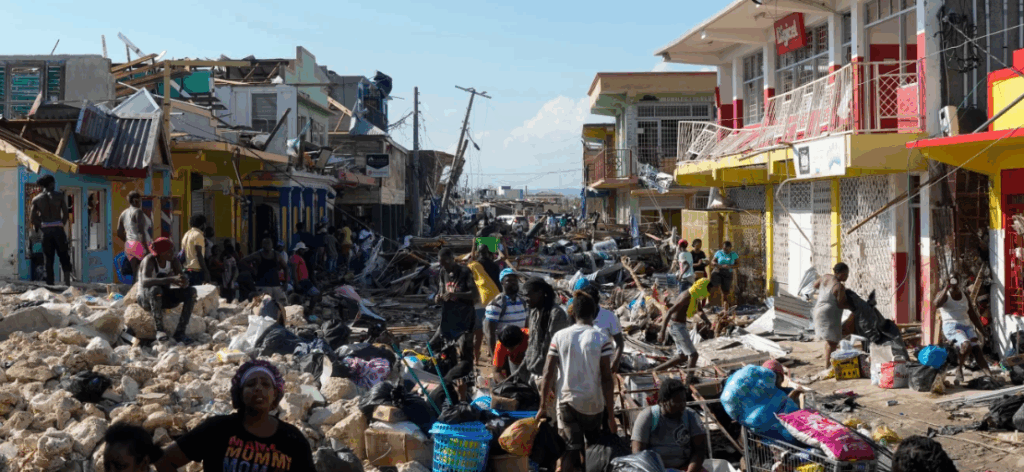Two University of the West Indies researchers are fronting a bold new funding mechanism to channel concessional climate finance to small developing states, including Barbados, under a One Health climate-resilience framework.
Director of the Centre for Biosecurity Studies at the UWI Cave Hill, Dr Kirk Douglas, is partnering with climate-finance economist at the St Augustine Campus in Trinidad, Dr Preeya Mohan, to design and deliver a climate-finance architecture for concessional funding to support One Health climate resilience for low- and middle-income countries (LMICs) and SIDS, in the spirit of the Bridgetown Initiative.
One Health climate resilience is an approach that recognises the interconnectedness of human, animal, and environmental health to build a society that can cope with and adapt to the impacts of climate change. It uses a multi-sectoral framework to promote sustainable practices, improve early warning systems, and create climate-resilient health systems, helping to mitigate risks such as zoonotic diseases, food insecurity, and antimicrobial resistance.
The Bridgetown Initiative is a call for urgent and decisive action to reform the postwar international financial architecture, which was designed at a time when most of today’s member states were not independent. At that time, climate risks or social inequalities, including gender equality, were not considered pre-eminent development challenges. The Bridgetown Initiative also argues that the current financial architecture was already structurally deficient when it was conceived.
While the Bridgetown Initiative is named for the capital where the initiative originates, it is not an initiative of Barbados alone, but rather a coalition of partners in a movement for global change, which Barbados leads.
As a delegate and one of the chairs of the just-ended World Organisation for Animal Health Global Conference on Biological Threat Reduction held in Geneva this week, Dr Douglas was asked to summarise his session and pertinent outcomes, and contribute commitments to actions. That is where the opportunity arose for him to lead action on the new financing framework.
“In my summative contribution, I highlighted the muscle memory of past experiences in responses to health events being the backbone of emergency management efforts, the need for bolstering capacity, but the enigmatic lack of access to fund resilience,” he told Barbados TODAY on Friday.
The university researcher said he also highlighted the current situation in Jamaica, as he underscored the need for an urgent paradigm shift in climate-resilient financing.
Dr Douglas said: “The paradigm shift necessary is to frame One Health events as climate events within the realm of climate finance. The fallout of climate impacts is emblematic with infectious diseases, vector-borne diseases, epidemics, epizootics, and plant health emergencies being pervasive. These are yet to be given adequate consideration in existing climate-finance frameworks, and the need is too great and it will only continue to grow.”
Dr Douglas, an expert on zoonotic diseases, illnesses that are transmissible to humans from animals, reported that the final day’s proceedings tackled head-on the critical issue of financing. The session Advocacy and Investment Strategies for Biological Threat Reduction “circumnavigated the waves of uncertainty that bedevil efforts to allocate the relevant monies to support vital components of One Health resilience”.
He added: “This is a gap that requires a different approach, frankly, not within the current toolbox of traditional animal, human or plant health specialists. This is a different tongue and language to be spoken to resonate in the ears of those who man the oars of the financial vessels around the world.” (EJ)
The post ‘New money’: UWI researchers to design new islands climate finance framework appeared first on Barbados Today.

